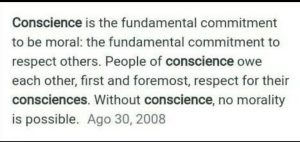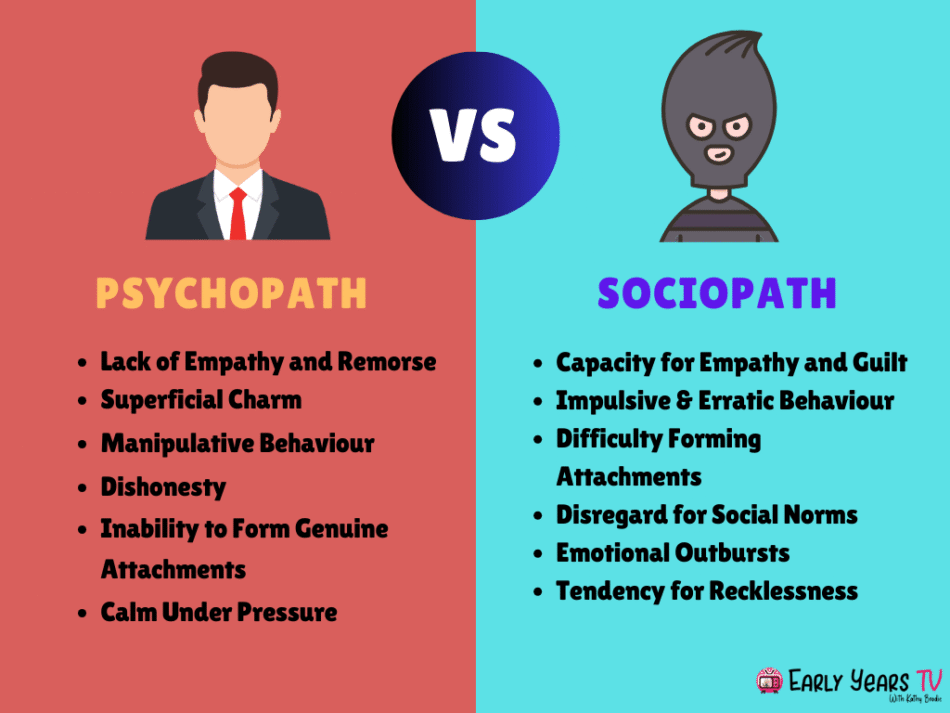
Page Description
Discover ‘People Without Conscience,’ detailing the controversial case of neuroloog Jansen Steur and his ethical breaches and deceitful practices.


More examples
A sense of guilt was deeply embedded in my conscience.
Let your conscience be your guide.
The charity used photos of starving children in an attempt to jolt the public conscience .
Dan’s mentioning Julia pricked my conscience and I gave her a call.
He salves his conscience by giving money to charity.

When Power Meets Deception
History is filled with individuals who, through negligence, misconduct, or outright malice, have inflicted devastating harm on innocent people—often without remorse. Whether in positions of power, authority, or trust, their actions (or inactions) reveal an alarming absence of conscience.
The British Post Office scandal is a stark example. Hundreds of innocent subpostmasters were wrongfully convicted due to faults in the Horizon IT system. Despite overwhelming evidence that the system was flawed, key figures—like Paula Vennells, Angela van den Bogerd, and Gareth Jenkins—ignored or actively suppressed the truth. Their choices destroyed lives, and to this day, their failure to take full responsibility raises profound ethical questions.
Such failures are not limited to the UK. In the Netherlands, the case of Ernst Jansen Steur, a neurologist who misdiagnosed patients—sometimes telling them they had incurable diseases—stands as a chilling reminder of what happens when professionals act without accountability. His actions, spanning years, left a trail of devastation, yet he evaded justice for far too long.
A more recent example is Sihame El Kaouakibi, a Belgian politician and activist who built a public image as a champion of diversity and social progress while allegedly embezzling large sums of public money. Her case is one of duplicity—projecting a noble cause while privately exploiting it for personal gain. This kind of deceit damages not only individuals but also erodes trust in institutions and genuine social movements.
Time and again, we see powerful individuals abusing their authority, misleading the public, and prioritizing their own interests over basic human decency. The refusal to admit wrongdoing, the callous disregard for suffering, and the institutional cover-ups make one question: How can people act this way?
This page explores such cases—people without conscience, the damage they have caused, and the urgent need for accountability.
Wanneer Macht en Bedrog Elkaar Ontmoeten
De geschiedenis is gevuld met individuen die, door nalatigheid, wangedrag of pure boosheid, onschuldige mensen grote schade hebben berokkend—vaak zonder enige berouw. Of het nu gaat om posities van macht, autoriteit of vertrouwen, hun daden (of inacties) onthullen een verontrustend gebrek aan geweten.
Het Post Office-schandaal in het Verenigd Koninkrijk is een schrijnend voorbeeld. Honderden onschuldige subpostmeesters werden ten onrechte veroordeeld door gebreken in het Horizon IT-systeem. Ondanks overweldigend bewijs dat het systeem gebrekkig was, negeerden of onderdrukten sleutelfiguren—zoals Paula Vennells, Angela van den Bogerd en Gareth Jenkins—de waarheid. Hun keuzes verwoestten levens en tot op de dag van vandaag roept hun weigering om volledige verantwoordelijkheid te nemen diepgaande ethische vragen op.
Dit soort falen is niet beperkt tot het VK. In Nederland staat het geval van Ernst Jansen Steur, een neuroloog die patiënten verkeerd diagnoseerde—soms door hen te vertellen dat ze ongeneeslijke ziektes hadden—als een huiveringwekkende herinnering aan wat er gebeurt wanneer professionals handelen zonder verantwoordelijkheid. Zijn daden, die jaren besloegen, lieten een spoor van verwoesting achter, maar hij ontliep lange tijd de gerechtigheid.
Een recenter voorbeeld is Sihame El Kaouakibi, een Belgische politica en activiste die een openbaar imago opbouwde als voorvechtster van diversiteit en sociale vooruitgang, terwijl ze naar verluidt grote sommen publieke gelden verduisterde. Haar zaak is er een van bedrog—een nobel doel uitdragen, terwijl ze het privé gebruikte voor persoonlijk gewin. Dit soort bedrog schaadt niet alleen individuen, maar ondermijnt ook het vertrouwen in instellingen en echte sociale bewegingen.
Telkens weer zien we krachtige individuen die misbruik maken van hun autoriteit, het publiek misleiden en hun eigen belangen boven elementaire menselijke waardigheid stellen. De weigering om fouten toe te geven, de kille onverschilligheid voor lijden en de institutionele dekmantel roepen de vraag op: Hoe kunnen mensen zich zo gedragen?
Deze pagina onderzoekt dergelijke gevallen—mensen zonder geweten, de schade die ze hebben aangericht en de dringende noodzaak van verantwoordelijkheid.

Conscience
The part of you that judges how moral your own actions are and makes you feel guilty about bad things that you have done or things you feel responsible for:
A guilty conscience
A question/matter of conscience
You didn’t do anything wrong – you should have a clear conscience (= not feel guilty).
My conscience would really bother me if I wore a fur coat.
UK He’s got no conscience at all (= does not feel guilty) about leaving me to do the housework.
Cambridge Dictionary
People without Conscience
1 Labeling individuals who wrongfully convict innocent people as lacking conscience. This is indeed a serious matter, often involving a range of factors such as negligence, misconduct, or even deliberate malice. People responsible for such wrongful convictions can certainly be seen as lacking empathy or conscience, especially if they fail to rectify their mistakes or show remorse for the harm caused to innocent individuals. It’s a complex issue that involves ethical considerations and legal accountability.
2 Absolutely, the case of the British Post Office scandal, involving the wrongful conviction of numerous postmasters due to issues with the Horizon accounting system, is a tragic example of the devastating consequences that can occur when individuals are wrongly accused and convicted. In this case, there were clear failures in oversight, accountability, and empathy towards those affected by the system’s errors.
Individuals involved in perpetuating such injustices, whether through negligence, willful ignorance, or malicious intent, bear a significant responsibility for the harm caused to innocent people’s lives. It’s essential for such cases to be thoroughly investigated, and for those responsible to be held accountable, both legally and ethically.
The British Post Office scandal underscores the importance of robust systems of accountability, transparency, and empathy within organizations and institutions to prevent similar injustices from occurring in the future. It also highlights the critical role of advocacy and support for those wrongfully convicted, as well as efforts to reform flawed systems and processes to ensure that justice is served.
3 An important point about the complexity and gravity of the British Post Office scandal. It’s evident from the description in Nick Wallis book ‘The Great Post Office Scandal’ that there were systemic failures, deliberate misconduct, and a gross disregard for justice on the part of certain individuals and institutions involved. Despite the resources available to the Post Office and the awareness of the problem, it appears that these issues persisted, causing untold harm to innocent individuals.
The actions and decisions made by those in positions of power and authority, including the CEO’s apparent knowledge and misrepresentation of the situation to Parliament, demonstrate a profound betrayal of trust and a willingness to sacrifice the lives and livelihoods of innocent people for the sake of institutional interests.
Cases like the British Post Office scandal underscore the urgent need for accountability, transparency, and reform within organizations and institutions. It’s imperative that such injustices are thoroughly investigated, those responsible are held to account, and measures are put in place to prevent similar abuses from occurring in the future.
The detailed examination of each case and the comprehensive documentation of the scandal, such as in Nick Wallis’s book, serve as important tools for understanding the extent of the wrongdoing and advocating for justice for those affected. Ultimately, it’s crucial that society continues to demand accountability and reform to ensure that such egregious miscarriages of justice are not repeated.
4 Indeed, Nick Wallis’s question ‘Why no one stopped the whole happening’ raises a fundamental point about the British Post Office scandal: the apparent failure of checks and balances within the organization and broader systems to prevent the injustices that occurred. Despite the complexity of the situation and the various individuals involved, there is a sense of disbelief that no one within the organization or other oversight bodies intervened to stop the wrongful convictions and the perpetuation of systemic errors.
This sentiment highlights the need for robust mechanisms of accountability, transparency, and ethical oversight within institutions to prevent such injustices from occurring. It also underscores the importance of individuals speaking out against wrongdoing and advocating for justice, even in the face of institutional power dynamics or personal risks.
The failure to halt the injustices in the British Post Office scandal serves as a stark reminder of the ongoing need for vigilance and reform to ensure that similar abuses of power and miscarriages of justice are prevented in the future.
5 The British Post Office scandal represents a systemic failure and a betrayal of justice on a significant scale. Unlike individual cases of wrongful conviction involving corrupt cops or other specific factors, this scandal illustrates how a combination of institutional shortcomings, managerial negligence, and a lack of oversight led to the wrongful prosecution and conviction of numerous innocent individuals.
The repercussions of such a large-scale miscarriage of justice extend far beyond the immediate victims and their families. They undermine public trust in institutions, erode confidence in the justice system, and highlight systemic flaws that must be addressed to prevent similar injustices from occurring in the future.
The British Post Office scandal serves as a sobering reminder of the importance of accountability, transparency, and ethical governance within organizations and institutions. It underscores the need for robust mechanisms to detect and prevent abuses of power, as well as the imperative of holding those responsible to account for their actions. Additionally, it highlights the critical role of advocacy, public awareness, and systemic reform in ensuring that justice is truly served for all individuals affected by such miscarriages of justice.
6 The behavior described in Nick Wallis book raises serious questions about accountability and transparency, particularly concerning Paula Vennells, the CEO of the British Post Office during the scandal. As a public figure and leader of such a prominent institution, there is an expectation that she would engage with the public and address concerns about the organization’s actions and decisions.
Refusing to speak publicly or provide interviews, especially when approached by journalists like Nick Wallis who were investigating the matter, can be interpreted as evasive and indicative of a lack of willingness to confront the issues at hand. It can further erode trust and confidence in the organization and its leadership.
Ultimately, leaders in positions of authority, particularly in organizations with significant societal impact, have a responsibility to be transparent, accountable, and responsive to public concerns. Avoiding public scrutiny and accountability only serves to compound the damage caused by such scandals and undermines efforts to address the underlying issues and prevent similar injustices from occurring in the future.
7 The convergence of the factors in the British Post Office scandal, including the court case brought by Allan Bates, the class action lawsuit involving hundreds of subpostmasters, and the independent investigative efforts of journalists like Nick Wallis, underscores the complexity and depth of the injustices involved. It’s a testament to the determination and resilience of those affected and their supporters to seek justice despite formidable obstacles.
The involvement of external entities such as the investment group supporting Bates’s court case and the successful crowdfunding efforts for investigative journalism highlights the importance of collective action and support in confronting systemic injustices. It also demonstrates the power of advocacy, transparency, and public awareness in holding institutions and individuals accountable for their actions.
While the fight for justice in cases like the British Post Office scandal may indeed feel like tilting at windmills at times, it’s crucial to recognize the significance of these efforts in exposing wrongdoing, advocating for accountability, and effecting systemic change. Even in the face of formidable challenges, the persistence and determination of those involved can lead to meaningful progress and the pursuit of justice for those who have been wronged.
8 Leaders in positions of authority, whether within secular or religious institutions, carry a responsibility to uphold ethical standards and act with integrity. When individuals in such positions are implicated in scandals or wrongdoing, it can have broader implications for public trust and confidence in both the individual and the institutions they represent.
The decision by Vennells to step down from her position in the Anglican Church may have been influenced by a variety of factors, including personal reflection, public scrutiny, and institutional expectations. However, the response of the Anglican Church to the scandal and its implications for Vennells’s leadership role within the church is a separate matter that would depend on the specific circumstances and internal dynamics of the institution.
In cases where individuals in leadership positions are involved in controversies or scandals, it’s essential for institutions to conduct thorough investigations, uphold accountability, and take appropriate action to address any wrongdoing or breaches of trust. This may include measures such as disciplinary action, public apologies, or reforms to prevent similar issues from arising in the future.
Ultimately, the response of both secular and religious institutions to such situations can have significant implications for their credibility, moral authority, and ability to foster trust and accountability within their communities.
9 Labeling someone as lacking conscience is a serious judgment that requires careful consideration of their actions, motivations, and the consequences of their behavior. In the case of Paula Vennells and the British Post Office scandal, there are certainly troubling aspects to her leadership and the role she played in the injustices that occurred.
Vennells held a position of significant authority within the Post Office during a period when numerous innocent individuals were wrongfully accused and convicted. Her failure to address systemic issues, provide adequate oversight, or take responsibility for the harm caused to innocent people raises questions about her ethical judgment and accountability.
However, it’s important to approach such assessments with caution and to consider the complexities of individual behavior and institutional dynamics. While Vennells’s actions may have had serious consequences and raised ethical concerns, it’s not necessarily accurate or fair to make definitive judgments about her character or conscience without a comprehensive understanding of the circumstances and motivations involved.
Ultimately, the British Post Office scandal highlights broader issues of accountability, transparency, and ethical leadership within organizations and institutions. It’s essential to hold individuals responsible for their actions and to work towards systemic reforms to prevent similar injustices from occurring in the future.
10 The characterization of Paula Vennells as someone who had significant power and influence within the British Post Office, yet failed to take effective action to address the systemic issues and injustices that occurred, is certainly a valid perspective. It highlights the responsibility that individuals in positions of authority have to wield their power ethically and to act in the best interests of those affected by their decisions.
The description of Vennells as someone who resisted efforts to change course, mislead others, and ultimately failed to acknowledge and rectify the harm caused by the Post Office scandal paints a troubling picture of leadership failure. It suggests a disregard for ethical considerations, accountability, and the well-being of those impacted by her actions.
Dictatorial tendencies or authoritarian leadership styles can indeed exacerbate issues of accountability and transparency within organizations, particularly when combined with unchecked power and resistance to dissenting voices. Such behavior can undermine trust, foster a culture of fear or silence, and impede efforts to address systemic problems or injustices.
It’s crucial for leaders to be receptive to feedback, open to scrutiny, and willing to take responsibility for their actions, especially in cases where serious harm has occurred. Holding individuals like Vennells accountable for their role in such scandals is essential not only for achieving justice for those affected but also for promoting accountability and ethical leadership within organizations and society as a whole.
Summary:
Wrongful convictions, whether due to negligence, misconduct, or malice, suggest a lack of conscience on the part of those responsible, raising ethical and legal concerns.
The British Post Office scandal exemplifies the tragic consequences of wrongful convictions, emphasizing failures in oversight, accountability, and empathy towards the affected.
Systemic failures, deliberate misconduct, and managerial negligence within the Post Office led to wrongful convictions, demonstrating a profound betrayal of trust and a need for accountability and reform.
The scandal highlights the failure of checks and balances within institutions, emphasizing the necessity of accountability mechanisms to prevent such injustices.
The scandal represents a systemic failure and underscores the importance of accountability, transparency, and ethical governance within organizations.
Leadership accountability, particularly concerning figures like Paula Vennells, is crucial for addressing wrongdoing and restoring public trust.
Collective action and advocacy are essential in confronting systemic injustices and holding institutions accountable for their actions.
Institutions must conduct thorough investigations and take appropriate action to address wrongdoing by individuals in leadership positions.
Labeling individuals as lacking conscience requires careful consideration, but leadership failures in addressing systemic issues raise ethical concerns.
Leadership failures, such as resistance to change and a disregard for accountability, highlight the importance of ethical leadership and accountability mechanisms within organizations and society.
Overall, the British Post Office scandal emphasizes the need for accountability, transparency, and ethical leadership to prevent similar injustices in the future.
The concept of psychopathy or sociopathy, which are personality disorders characterized by a lack of conscience, empathy, and remorse. Here are some key points generally associated with this concept:
Absence of empathy: People without conscience, often referred to as psychopaths or sociopaths, lack the ability to feel empathy, which is the ability to understand and share the emotions of others. They may have difficulty understanding or relating to the emotions, needs, and experiences of others.
Shallow emotions: Psychopaths or sociopaths may display superficial or shallow emotions. They may have a limited range of emotional responses, or their emotions may be exaggerated, inappropriate, or disconnected from the situation.
Impulsivity and irresponsible behavior: Psychopaths or sociopaths may have a history of impulsive and irresponsible behavior, often acting without considering the consequences. They may engage in risky or illegal activities without regard for the potential harm they may cause to themselves or others.
Lack of guilt or remorse: Psychopaths or sociopaths may not feel guilt or remorse for their actions, even if they harm others. They may rationalize or justify their behavior, or simply not care about the impact of their actions on others.
Manipulative and deceitful behavior: Psychopaths or sociopaths may be skilled at manipulating others for personal gain. They may lie, deceive, and manipulate others to achieve their goals, often without feeling guilty or remorseful about their actions.
Superficial charm and charisma: Psychopaths or sociopaths may possess superficial charm and charisma, which they use to charm and manipulate others. They may be able to quickly establish rapport with others, but their charm is often superficial and used for self-serving purposes.
Lack of long-term goals or plans: Psychopaths or sociopaths may have difficulty maintaining long-term goals or plans, as they may be more focused on short-term gratification and immediate gains.
Relationship difficulties: Psychopaths or sociopaths may have difficulties forming and maintaining meaningful relationships due to their lack of empathy, manipulative behavior, and inability to form deep emotional connections with others.
It’s important to note that psychopathy and sociopathy are complex and controversial concepts in the field of psychology, and not all experts agree on their definitions or characteristics. It’s always best to consult with a qualified mental health professional for accurate information and diagnosis.
2 Tom Zijlstra over affaire Jansen Steur: ‘Bestuurlijke medeverantwoordelijkheid kun je niet ontlopen”
Back to menu
5 apr. 2016
3 Fouten van neuroloog Jansen Steur – Drost Letselschade
14 nov. 2011
4 ‘Jansen-Steur ook in de fout in Duitsland’
20 sep. 2013
Eenvandaag 20 september 2013
De oud-neuroloog Jansen Steur die wordt vervolgd voor een reeks ernstige medische fouten, is opnieuw in de fout gegaan, in Duitsland. Een 78-jarige vrouw zou daarvan het slachtoffer zijn, blijkt uit een uitgelekt rapport in opdracht van Duitse rechters.
Oud-neuroloog Jansen zou een opeenstapeling van medische fouten hebben gemaakt, waardoor de vrouw volgens het onderzoek een dwarslaesie opliep en in een rolstoel belandde. Eerder dit jaar overleed ze omdat haar gezondheid snel achteruit ging. Onnodig en verwijtbaar, volgens experts die de zaak onderzochten.
De omstreden arts nam zonder medische reden ruggenmergpuncties en richtte daarmee volgens het rapport onherstelbare schade aan. Ook zou hij de patientenstaat hebben vervalst. In opdracht van de rechtbank in Mainz is de kwestie onderzocht.
RTV Oost wist de hand te leggen op het rapport, dat EenVandaag ook in bezit heeft. EenVandaag spreekt erover met advocate Michaela Bürgle. Zij vertegenwoordigt de nabestaanden van de gestorven 78-jarige patiente van Jansen Steur. Mevrouw S. Bürgle voert sinds 2011 een civielrechtelijke procedure tegen Jansen Steur. Ze zal op zeer korte termijn aangifte doen en aandringen op een strafrechtelijk onderzoek.
Verder een reactie van letselschade-advocaat Yme Drost en onderzoeksjournalist Rob Vorkink die de nieuwe zaak ontdekte. Ook een reactie van Freddy de Haan, die ook een verkeerde diagnose kreeg van Jansen-Steur en aangifte deed.
Met de nieuwe zaak wordt het schandaal rond de voormalige Twentse arts van het Medisch Spectrum Twente opnieuw groter. Volgende maand moet Jansen-Steur zich verantwoorden voor de rechter in wat al de grootste medische strafzaak ooit in Nederland wordt genoemd. Hij wordt verdacht van 21 strafbare feiten, waaronder verkeerde diagnoses en vervalsingen. Zo vertelde hij negen patienten dat ze parkinson, alzheimer of multiple sclerose hadden, terwijl dat niet zo was.
Jansen-Steur kon nadat hij werd geschorst in Twente gewoon doorwerken. De Duitse zaak speelde zich af toen de ex-neuroloog in Nederland al vervolgd werd door justitie.
Begint dit jaar kwam al een vermoeden naar buiten dat Jansen Steur ook in de fout gegaan was in Duitsland. Een Duitse oud-patiënt vertelde in januari in EenVandaag dat ze dagenlang niet kon bewegen nadat ze een ruggenprik had gehad van Jansen Steur. Bekijk deze reportage en een reportage over het begin van de strafzaak tegen hem hieronder terug.
5 Chirurg MST Enschede thuis door affaire Jansen Steur
28 nov. 2012
6 Ex-neuroloog Jansen Steur weer aan het werk in Duitsland
4 jan. 2013
7 OM: Jansen Steur schuldig aan dood patiënte
28 nov. 2012
Lees het hele bericht op http://www.rtvoost.nl/nieuws/default….
8 Inspectie faalt inzake verslaafde neuroloog
27 mei 2010
9 “Ex-neuroloog Jansen Steur moet opnieuw psychisch onderzocht worden”
Bekijk het hele bericht op: http://www.rtvoost.nl/nieuws/default…..
10 “Opmerkelijk dat Jansen Steur vasthield aan verkeerde diagnose”
7 nov. 2013
11 Advocaat: “Jansen Steur is moederziel alleen”
12 Oud-patiënten willen straf voor IGZ affaire Jansen Steur
22 apr. 2014
Dat bleek vandaag tijdens een tuchtzaak in het gerechtsgebouw in Zwolle tegen twee oud-inspecteurs en hun toenmalige baas.
13 Samenvatting Jansen Steur
14 Advocaat Jansen Steur: “Vonnis van rechtbank is prullenbak in gegooid”
18 jun. 2015
15 Nabestaande patiënt Jansen Steur verbijsterd over uitspraak in hoger beroep Jansen Steur
18 jun. 2015
Bekijk het hele bericht op: http://www.rtvoost.nl/nieuws/default…..
16 Het proces Jansen Steur: ‘Een schoolvoorbeeld van hoe het echt niet moet’
21 jun. 2017
Bekijk het hele bericht op: http://www.rtvoost.nl/nieuws/default…..
17 Waarschuwing voor inspecteur in zaak ex-neuroloog Jansen Steur
16 jun. 2014
18 Hoe strafbaar is een foute arts? Morgen strafeis Jansen Steur bekend
4 dec. 2013
19 Affaire Jansen Steur
20 Proces Jansen Steur op punt van beginnen, grootste medische tuchtzaak ooit
1 nov. 2013
21 OM onderzoekt onnodige hersenoperatie
22 Interview met letselschade-expert Yme Drost
23 Jansen Steur stortte verduisterde geld terug
5 nov. 2013
24 Letselschadedeskundige Yme Drost: “Dit is waar ik altijd voor heb gevreesd”
18 jun. 2015
Bekijk het hele bericht op: http://www.rtvoost.nl/nieuws/default…..
1 Holloway attorney JQK reacts after Castro Castro interview van der Sloot
2 Joran is guiltyJoran is NOT guilty……… NOT
3 Joran van der Sloot vertelt over zijn boek
4 Pauw & Witteman – Samenvatting Natalee Holloway zaak
18 feb. 2008
5 Joran van der Sloot gooit wijn in gezicht Peter R. De Vries
14 jan. 2008
6 Heeft Joran Natalee Holloway wel vermoord? – RTL LATE NIGHT
18 okt. 2013
6 Terror Jaap puts Joran van der Sloot at polygraph!
1 Sihame El Kaouakibi
15 feb. 2021
2 Maddens en Bauwens: ‘Sihame doet alarmbellen rinkelen bij Open Vld’
12 feb. 2021
Bart Maddens vindt de particratie nog verdedigbaar binnen een democratie om tot een werkende regering te komen, terwijl Pieter Bauwens een lans breekt voor dissidenten. Zo hebben we in deze aflevering van Doorbraak Radioeen boeiend debat over de kern van het parlementaire werk en onze democratie.
3 Sihame El Kaouakibi
16 mei 2019
Stem op 26 mei voor een All In Economy; een samenleving waar iedereen telt en verdient. Lat hoog, maar drempels laag zodat iederéén de eindmeet haalt! Open VLD – Vlaamse Lijst Nr 2 Antwerpen www.sihame.be
4 Urban culture en jongerenactivatie: Sihame El Kaouakibi at TEDxFlandersSalon
5 Sihame El Kaouakibi – TUSSENKOMST VLAAMS PARLEMENT 04.03 – studiekeuze secundair onderwijs
En dan wat de ouders betreft: uiteraard, lokaal, in die wijken moeten we er alles aan doen om de ouderparticipatie te verhogen en daar waar de ouders het schoolsysteem niet kennen en ook zelf niet ambitieus zijn. Niet voor zichzelf, nog voor hun kinderen. Daar moeten we op inzitten.
6 De leukste grappen: We gaan je huis slopen…
7 De leukste grappen: Geldtruc met Wesley (1)
15 sep. 2010
8 De leukste grappen: Geldtruc met Wesley (2)
15 sep. 2010
9 Boy Beats Up Cop For Taking His Toy Prank
18 jun. 2018
Ted Tettero
3 jaar geleden